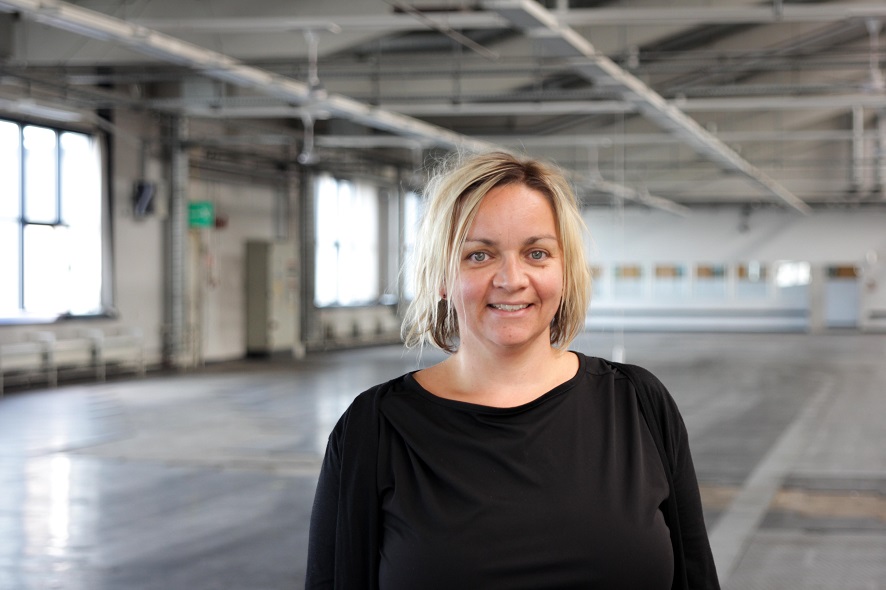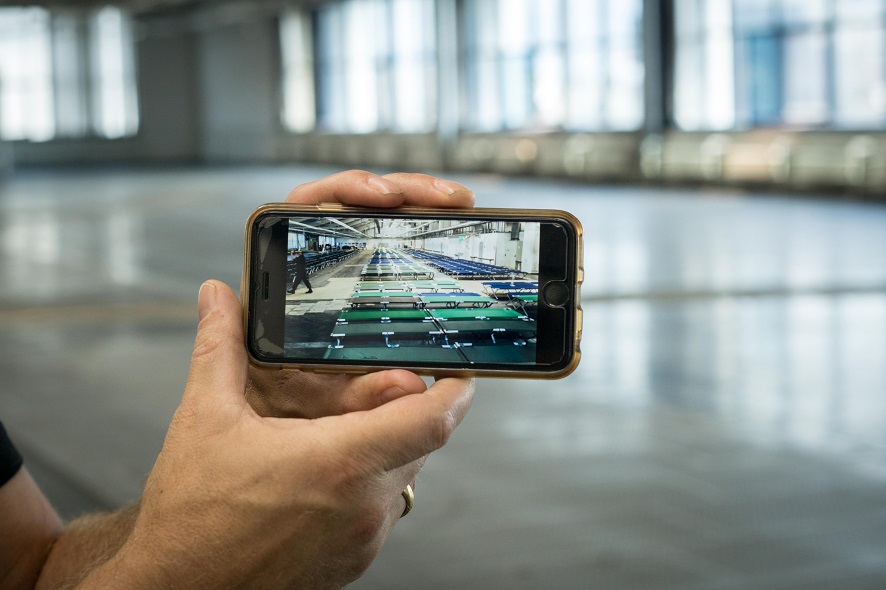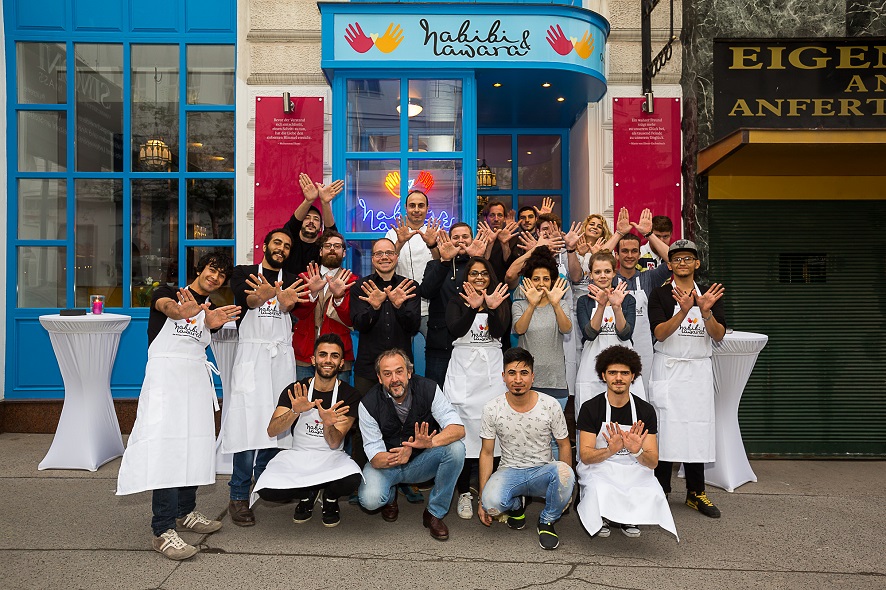Without them, this last year would have proceeded much differently—the many volunteers who’ve made a commitment to aiding refugees and facilitating coexistence with them. Since the spring of 2016, as a means of fostering the process of communication and knowledge transfer among volunteers and as a token of appreciation for their efforts, ZusammenHelfen in Oberösterreich, the go-to source of expertise about refugees at the Independent Province Volunteer Center (ULF), has been organizing the Helpers Conference as a platform for committed activism.
At the time of the first conference, providing initial care to refugees was the highest priority. Now, other issues top the agenda: integration, long-term projects, and how to enable refugees to settle in and feel at home here. On September 10, 2016, participants will deal with three thematic clusters subsuming the various aspects that are most important now for refugees as well as volunteers.
Activists and those interested in getting involved, volunteers and professionals, are invited to preregister for the Helpers Conference (online or by telephone: 0732/ 770 993). Participation is free of charge.
Here, Nicole Sonnleitner of ZusammenHelfen in Oberösterreich tells us about what’s lined up and the reasons for holding a second conference.

Nicole Sonnleitner of ZusammenHelfen in Oberösterreich. Credit: Vanessa Graf
What have you scheduled for the Helpers Conference on September 10th?
Nicole Sonnleitner: This conference features a new, innovative and perhaps rather unusual format. We’re striving to take advantage of the Ars Electronica Festival’s innovative potential and framework conditions to address issues that are new and might assume growing importance in the future. We’ve organized them into three thematic clusters that we think are especially important for volunteers: society, work and media. During the organizational phase, we queried almost 1,000 volunteers about the content they’d like to have treated at future conferences, as well as what their basic needs are—what volunteers have to know for their efforts to be effective.
It turned out that the area of work/employment is very important for both volunteers and refugees, so we’re dedicating an entire cluster to this topic. The society cluster, on the other hand, is meant to offer a general introduction to this topic to provide an overview of the current situation in Austria and abroad. Here, for example, a speech entitled “Europe: Refugee Crisis or Solidarity Crisis?” by UNHCR Austria Director Christoph Pinter will get across the fundamentals: What does the global situation look like? How is this refugee crisis really playing out? Where are the flows of refugees?
The third cluster, media, isn’t something that you necessarily associate directly with efforts by volunteers. Nevertheless, ever since early 2015, the media have actually constituted a key issue even among volunteers. Much of our communication proceeds via Facebook, and many new networks formed very quickly on social media sites. A phenomenon of such dimensions is unprecedented in the context of volunteer work, but we ultimately recognized that these new media are tremendously significant to our committed activism. This is precisely what we want to address—for instance, with Frau Brodnig, who’ll speak about hate postings, which, after all, target volunteers too. We want to show what’s possible in this world and how volunteers might be able to take even better advantage of this potential, but also how we can protect volunteers.
Which items on the schedule are you especially looking forward to?
Nicole Sonnleitner: Every point on our agenda is extremely interesting—for example, the projects that transcend the borders of Upper Austria or Austria. We’ve made an intentional effort to spotlight examples and also perhaps new approaches people are taking in other countries. One is Sharehaus Refugio in Berlin, the founders of which will be attending the Helpers Conference to tell us about their facility and the coexistence under one roof there of people from very diverse backgrounds and all walks of life. This is a very interesting example of an alternative approach to nurturing integration.
I’m also very much looking forward to Frau Burkert’s speech “Refugee Isn’t an Occupation” in which she’ll go into the significance of prompt labor market integration. One project—a restaurant named Habibi & Hawara in Vienna—will demonstrate how Austrians and refugees can collaborate as entrepreneurs. These are examples of successful integration or new approaches to it, and somebody in the audience just might get the idea that one would be worth a try in their own community. That’s our objective—we want to make people aware of ideas and motivate them.

A picture of the emergency beds in POSTCITY – in the same place where the conference will take place this year. Credit: Vanessa Graf
Imparting knowledge and inspiring inventiveness—was that the mission of the first conference last spring?
Nicole Sonnleitner: The first conference took place under somewhat different preconditions. A lot happened in 2015 and many volunteers attended the conference. The point was to see how to sustain such a high degree of voluntary commitment. What has to be done to prevent the mood from suddenly souring? In which areas can we provide support? On one hand, we wanted people to share experiences; on the other hand, we wanted to convey appreciation, and we wanted the conference to serve as a framework for this. Rudi Anschober, regional minister for integration, was also on hand to meet & greet people on site and to answer their questions, and he’ll be doing that again this time. We wanted to show that we’re on your side and we’re making resources available. For example, there were workshops on topics such as trauma and language. Afterwards, we got a lot of feedback that the attendees saw the conference as an expression of gratitude and a source of motivation.
To what extent have the conference topics changed in the meantime?
Nicole Sonnleitner: The topics have changed along with the situation. Last year, the mental images we had were of the many volunteers in train stations. That’s different now. Many of the refugees are now living in quarters in communities throughout Austria and will stay in this country. At first, the problem was to provide these people with food or diapers or temporary shelter. Now, this is a matter of getting them into a job, a language course and an apartment. How can refugees make a life for themselves in Austria? And the volunteers’ topics have changed too. At first, callers wanted to find out where to bring winter clothing or furniture; now, people call and ask how they can help out with language instruction, and whether refugees can do internships or work on a voluntary basis. The volunteers have grown together with the issues, and the questions posed by volunteers precisely mirror developments with respect to refugees over the last year and a half.
So this is less a matter of providing initial care and more about long-term integration …
Nicole Sonnleitner: The point is to take advantage of the potential of volunteers on a long-term basis since, otherwise, integration isn’t going to work. From my perspective, it’s incumbent upon each and every one of us to make a contribution in our immediate environment. People who had to flee their homeland live among us—that’s the way it is. We can’t simply cede responsibility to the state. This is a challenge facing the community and it can only be managed cooperatively. Resources have to be made available. But we all have to ask ourselves how we want to coexist. And everyone can make a contribution. Thanks are due to the volunteers, many of whom have worked countless hours to aid refugees and thus made a committed effort on behalf of our society!
The 2nd Helpers Conference is being staged on September 10, 2016 by ZusammenHelfen in Oberösterreich in conjunction with the 2016 Ars Electronica Festival. Participation is free of charge. The target audience consists of volunteers and professionals supporting refugees to get integrated in the Province of Upper Austria. Furthermore, asylum seekers who are performing volunteer or community service work are cordially invited to take part in this conference. The registration can be done online or by phone (0732/ 770 993). Please keep in mind that your registration is not valid until it has been officially confirmed via telephone or e-mail by ZusammenHelfen in Oberösterreich.
